If you’re a bottom, you’ve probably been there before. An afternoon of triple-cheese pizza and ice cream; fiery-hot, death-style ramen and sake; Jalapeno poppers and flaming-hot Cheeto nachos, and then a dawning realization that you’ve just consumed the bedroom equivalent of a ticking time bomb and you’ve got an appointment to have your insides rearranged in less than three hours (anal sex, we’re talking about sex).
You know you should have been more prepared with the best foods to eat before bottoming. You can cancel, but you’re not going to. You know you just aren’t.
It’s been so long, and your dick appointment is so hot, and only superhuman control has kept you from jumping on him and tearing off his clothes this whole time. You can’t wait another day. Not to mention you have the cute jockstrap you want to show off and the gay sex toys are just not cutting it anymore.
So you turn to the only real option to avoid painting and have him block and delete your number: laxatives with a generous side of douching. It works (duh), and everything goes well. But fast forward to the next time something like this happens, and you have to do it again…and again…and again.
I don’t think we have to spell out the downsides of the laxatives and douching combo – they are a lot. So now you’re thinking: what are some things I can actually eat without having to worry myself thinking about how they’ll show up at the other end? Just know you’re far from the only person who’s ever had this problem, and we’re about to put an end to your dilemma.

We’ll try to include enough of the best foods to eat before bottoming so that even if your body doesn’t agree with some, you’ll likely find that the others are helpful.
Bottoming, of course, is the act of being the receptive partner during anal sex. The other person, the one doing the penetration, is known as the top. While diet plays a huge part in a smooth bottoming experience, other factors contribute to the experience, including physical comfort, mental and emotional readiness, and the use of lubrication.
It is essential for people who are considering bottoming to communicate openly and honestly with their partner to make sure that both parties are comfortable and consenting. It is also important to practice safe sex and to use condoms and other protective measures to reduce the risk of sexually transmitted infections (STIs).
With that said, here are the best foods to eat while bottoming, in order to make the experience more comfortable.

Water
The world seems to be undecided as to whether water can technically be called food or not, but we just couldn’t leave it out of this list of the best foods to eat before bottoming. If you want to be a successful bottom, water has to be your best friend. The importance of water deserves its own article, but we’re going to mention as many points as we can, just to show how important it is.
Water helps in the transportation of food through the digestive tract. It helps to soften and moisten the food that we eat, which can make it easier to move through the intestines.
Water also helps to keep the body hydrated. Dehydration can cause constipation, which can make it more difficult to pass stools. Drinking enough water can help to keep the body hydrated and prevent constipation.
Water helps to flush out waste products from the body, including undigested food particles and toxins. This can help to keep the digestive tract clean and healthy.
Water helps to stimulate digestion. Drinking water with meals can help to stimulate the digestive process. This is because water helps to stimulate the production of saliva and digestive enzymes, which are necessary for breaking down food and absorbing nutrients.
Greens
Greens are like the holy grail of food. There’s no situation in which you can have too many greens. Looking a bit pale? Eat more greens. Been feeling lightheaded recently? Greens should fix you up. Feel a cold coming on? Have a large helping of greens. By greens, we mean spinach, arugula, collard greens, and kohlrabi, among others.
The fibers contained in the greens soften stools and make bowel movements easier, making it easier for you to clear out your colon before you bottom. According to recent findings, these vegetables also contain sulfoquinovose. This complex sugar may aid the growth of useful microbes in the gut, improving your health in the process.
A slight word of caution: you don’t want your stools too loose, so don’t go drinking a green smoothie one hour before you have sex unless you want an unfortunate accident to happen.
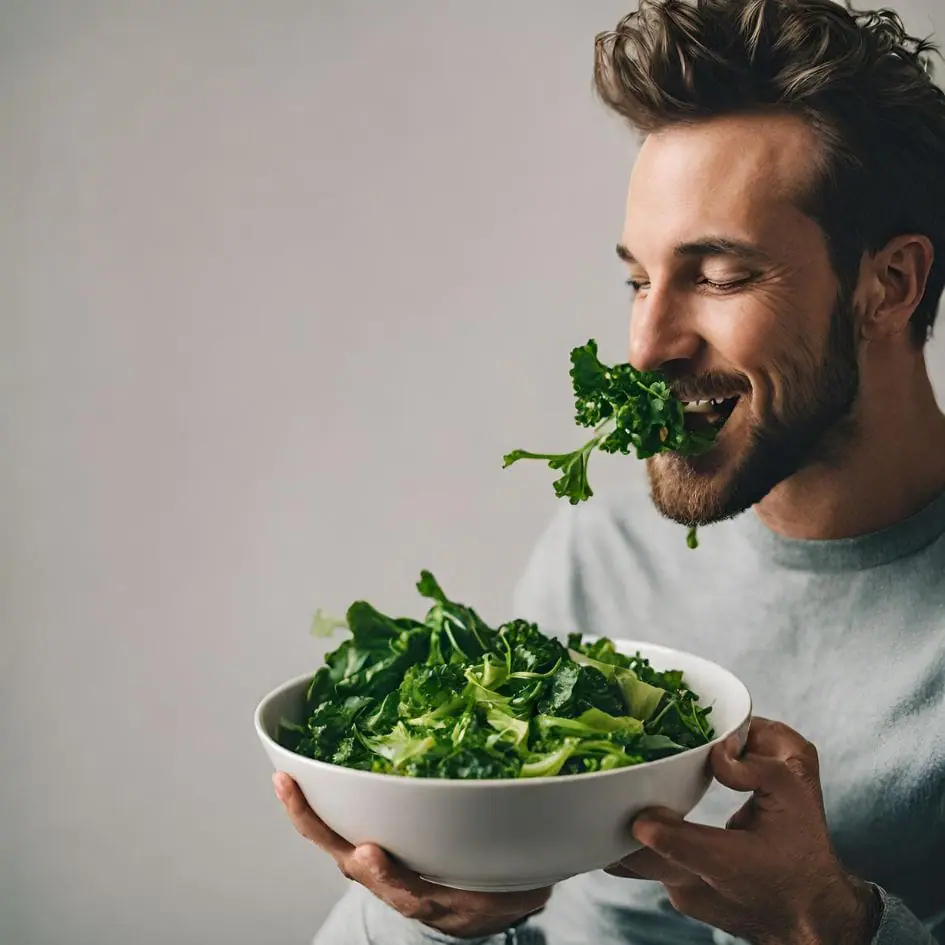
Root Vegetables
This is another group of foods that’s just chock full of fiber, which is what the colon needs to survive. Foods like carrots, sweet potatoes, and beets are full of fiber that can aid in digestion.
They also help you stay full faster, so you avoid sweets and fizzy drinks, things that can cause intestinal upset and make you feel uncomfortable and bloated before a date.
Yogurt
This may sound weird to a lot of people, but yogurt – real, fresh yogurt, not the processed thing they sometimes sell – is great to eat before a date.
Fermented products, including yogurt, cheese, etc, may contain probiotics and healthy microflora that improve your digestion.
You can also try kefir, which is a fermented milk drink that is filling and contains probiotics. Probiotics promote better digestion and gut health. Just keep in mind that they are still dairy, and consume them only in moderation. Also, if you’re lactose-intolerant, please stay away.

Unsaturated Fats
Unsaturated fats are the good fats we always hear about, the ones that improve heart health. This kind of fat aids in vitamin absorption, and it also combines with fiber to help encourage bowel movements. Plant oils like olive oil and canola oil are good sources of unsaturated fats.
Remember, fats are always to be consumed in moderation. Health benefits aside, consuming a lot of fat can cause indigestion and discomfort.
Ginger
Ginger is famous for its ability to reduce bloating and other digestive problems. It can be successfully used in any form. Fresh and dry ginger, ginger powder, and even ginger oil can be put into food, smoothies, and even tea.
Ginger powder is best for flavoring food, while fresh ginger gives the best results for teas. A ginger infusion about twelve hours before sex will cleanse your digestive system and make you feel ready to go. As a plus, you’ll probably have that spicy scent that is so sexy to some people.

Oatmeal
Oatmeal is good for so many things. It can be incorporated into baking cakes, cookies, brownies, and bars. It can also be made into smoothies and shakes. Finally, we have the two most common uses: overnight oats and oat porridge.
The beauty of the last two is that they can be combined with nuts, fruit, whey powder, peanut butter, and chia seeds, all things that are good for you. And your digestion receives a mega-boost, aiding your bowel movements and leaving you free and uninhibited when it’s time to have sex.
Legumes
Legumes include beans and peas, two of the most versatile foods. From burritos to refried beans to fried rice and even warming, filling soups, these two staples should have a regular place in your diet – up until a full day before your date, because although they’re a great source of fiber and protein and keep you full and satisfied.
They also contain nitrogen, making you potentially gassy. Nobody wants to be farting with each thrust, believe us.
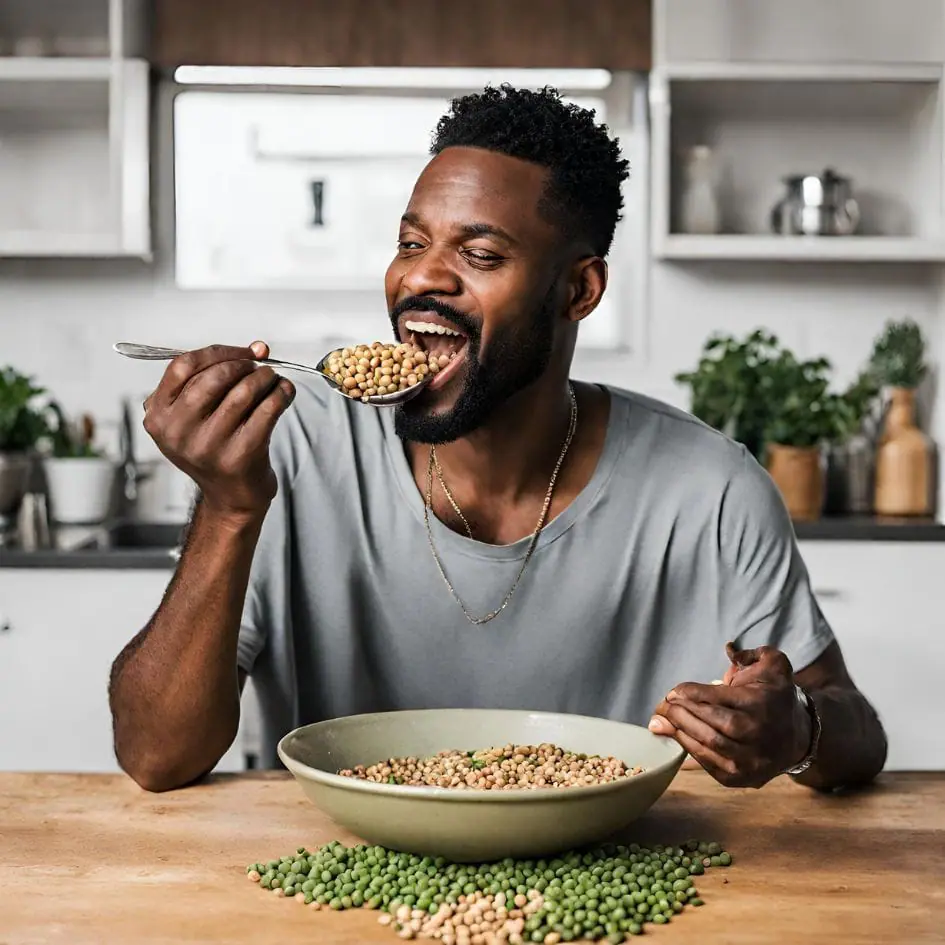
Nuts
Fiber from nuts is a wonderful source and can support a healthy digestive system. In particular, they contain both soluble and insoluble fiber. Soluble fiber can help to bulk up the stool and make it easier to pass through the intestines, while insoluble fiber can help to add roughage to the diet and stimulate the muscles in the digestive tract, which can help to promote regular bowel movements.
Nuts are also high in antioxidants and other nutrients that can support overall digestive health. For example, some nuts, such as almonds, are a good source of vitamin E, which can help to protect the lining of the digestive tract from oxidative stress.
In addition to their fiber and nutrient content, nuts are also a good source of healthy fats, which can help to nourish the cells of the digestive tract and support their function.
Brassicas
No, this isn’t a new superfood you’ve not heard of before. Brassicas, also known as cruciferous vegetables, are a group of vegetables that belong to the family Brassicaceae. Some examples of brassicas include broccoli, cabbage, kale, Brussels sprouts, and cauliflower. These vegetables are known for their high nutrient content, including vitamins, minerals, and antioxidants.
One of the key nutrients found in brassicas is dietary fiber, which can help to promote healthy digestion. In addition, brassicas are a good source of vitamins and minerals such as vitamin C, vitamin K, and folate, which can support overall health.
Brassicas are also high in antioxidants, particularly glucosinolates, which have been shown to have a variety of potential health benefits, including reducing the risk of certain types of cancer and supporting heart health.
It’s important to note that while brassicas can be a nutritious addition to the diet, they can also contain compounds that may interfere with the absorption of certain medications. If you are taking medication, it’s a good idea to speak with your healthcare provider before adding brassicas to your diet.
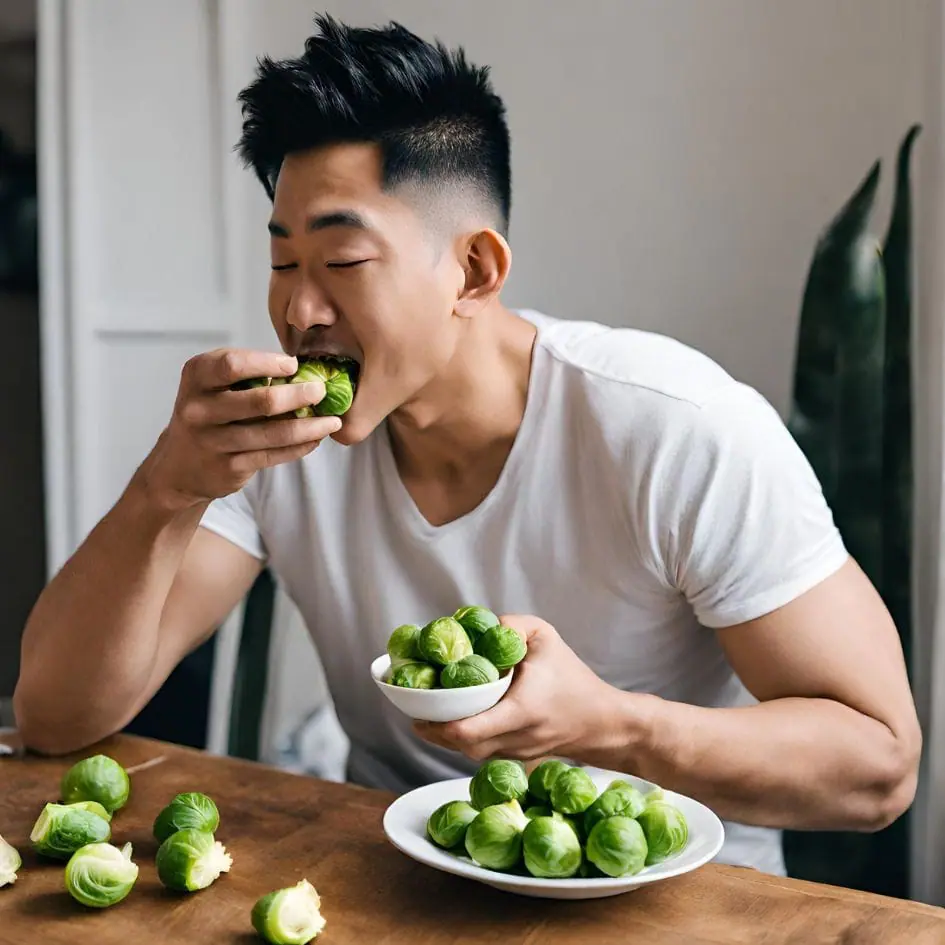
Berries
Strawberries, blackberries, blueberries, cranberries, raspberries, and every sort of berry you can think of has a health benefit, especially when it comes to digestion. Their water and fiber content helps you feel fuller faster, and
besides, they go with just about anything. You can even make cranberry, olive oil, and pecan pasta! That’s three superfoods in one. You really should make that your pre-game meal. They are also packed with all sorts of vitamins, so you’ll be raring to go.
Marathon sex, anyone?
Apples and Pears
We put these together because they look alike, taste similar, and have about the same texture. They’re a combination of soluble and insoluble fiber and provide a quick burst of energy for when you need a pick-me-up on the go.
More importantly, they contain valuable nutrients to keep your whole body healthy and safe. Also, fruits in general, make all your bodily fluids, including sweat and come, smell – and dare we say taste – better.
Avocados
We all know avocados are a superfood, but wait till you hear how great they are. One medium-sized avocado contains twenty-five percent of your recommended daily fiber intake. This means that they help support digestive health. Fiber is a type of carbohydrate that the body cannot digest, and it helps to add bulk to the stool, which can help prevent constipation and make bowel movements easier.
Avocados are also rich in healthy fats, which can help to promote the absorption of fat-soluble vitamins and nutrients. They contain monounsaturated fats, which have been shown to have a positive effect on blood cholesterol levels and may help to reduce the risk of heart disease.
Making an addition to fiber and healthy fats, avocados include a range of nutrients that can help support digestive health.. For example, they are a good source of potassium, which can help to regulate fluid balance in the body and support healthy muscle function. They also contain antioxidants, which can help to reduce inflammation in the body and protect against damage from free radicals.
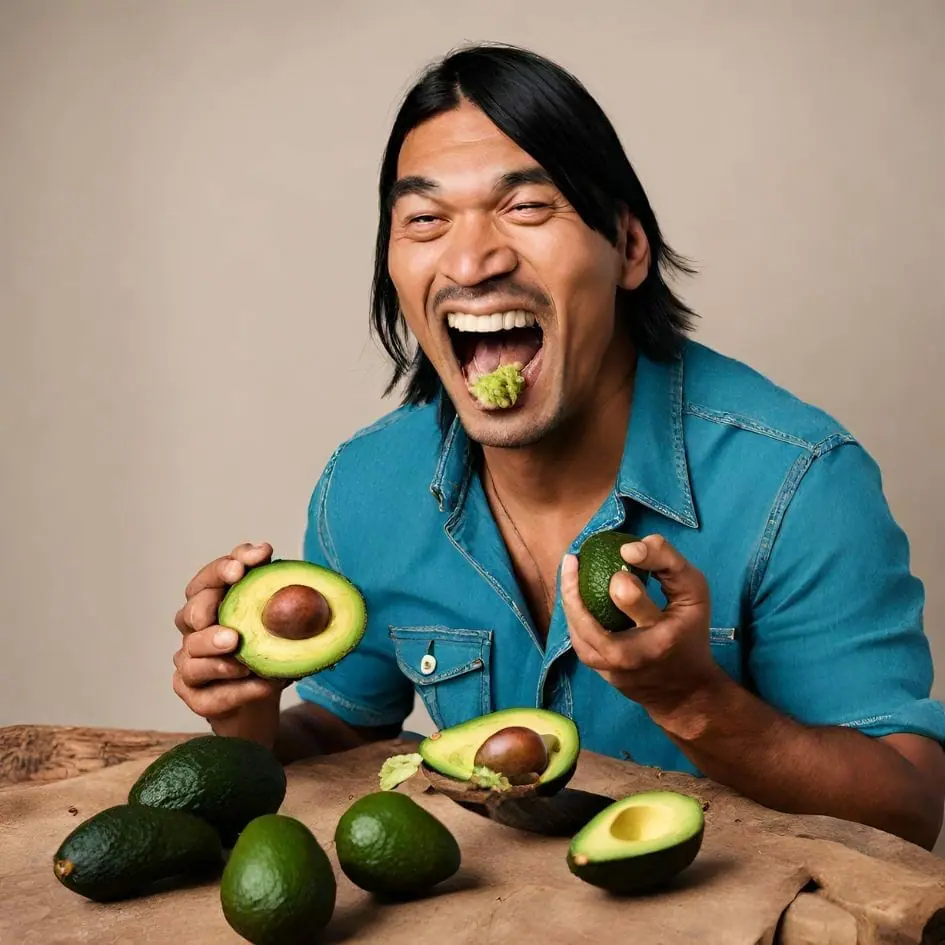
Whole-Grain Foods
Every grain that hasn’t been processed and still has the outer coating i.e., the bran, as well as the germ, intact can fall under this group. This includes rice, wheat, quinoa, fonio, millet, corn, and many other lesser-known grains.
Foods made from whole grains are high in fiber and aid in better digestion. Whole grains are slowly metabolized by the body, which helps regulate blood sugar levels.
Citrus Fruits
Citrus fruits, such as lemon, orange, limes, and grapefruits, are a good source of fiber, which is important for digestive health. Fiber, as we all know, aids in quick digestion, and it can help to prevent constipation. Citrus fruits are also rich in vitamin C, which can help to support the immune system and protect against infection. Additionally, the acidity of citrus fruits may help to stimulate the production of digestive juices, which can aid in digestion.
Citrus fruits are generally well tolerated by most people and can be a tasty and refreshing addition to the diet. However, it’s important to eat them in moderation, as they can be high in natural sugars and acidic, which may cause digestive issues for some people.
Seeds
In this category, we will include all the seeds that have, throughout history and in modern times, acted as an important source of fiber, fats, and vitamins. These include, but are not limited to, flax seeds, chia seeds, melon seeds, sunflower seeds, breadfruit seeds, and even sesame seeds.
These seeds can be added to smoothies or açai bowls, made into pralines, or used as a filling snack.
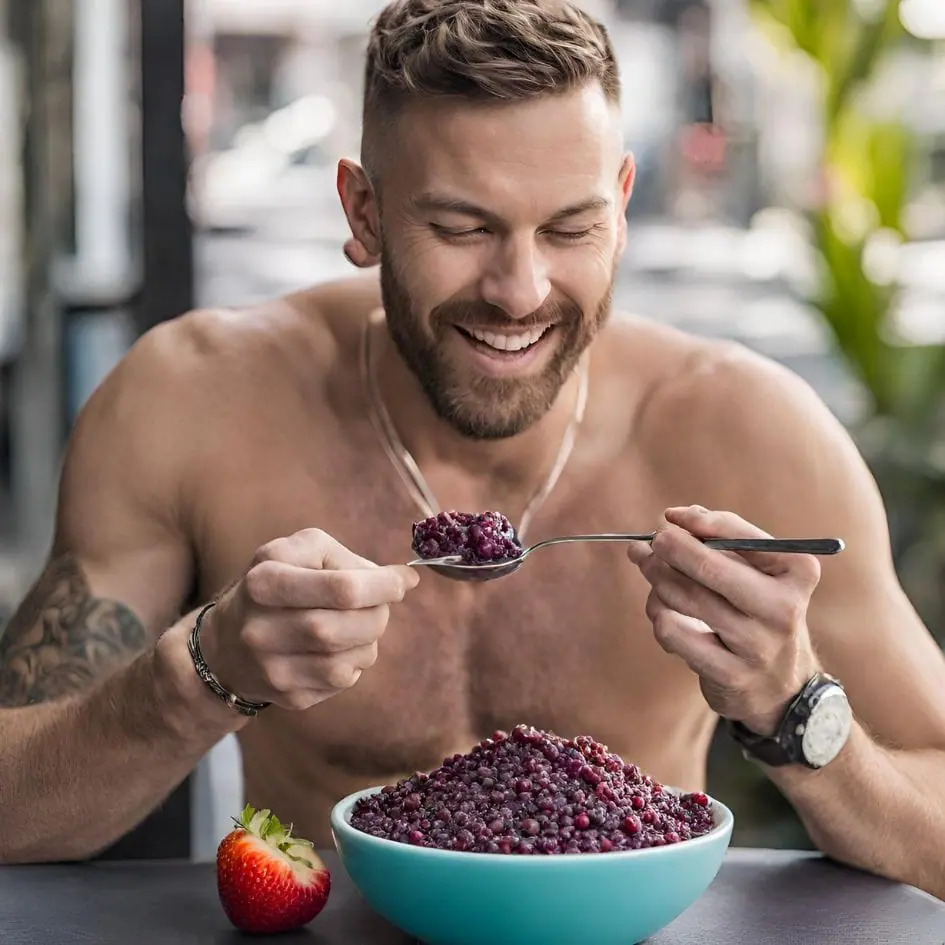
Now that we’re done with foods that are great to eat before bottoming let’s do you a little favor and tell you things to avoid. Fizzy drinks are first on the list. They leave you feeling absolutely terrible. You’ll be bloated, gassy, and listless when it’s time to do the nasty, and you’ll have a terrible experience.
Stay off the soda. Refined sugar belongs to this group as well. We’re not purists, and sugar isn’t bad in small quantities, but once you’ve passed your recommended daily amount, it’s time to stop.
Excess alcohol is also a no. Take a shot or two, but don’t drink until you’re throwing up and passing out. Saturated fats should also be side-eyed. It’s just not good for your digestive system in general.
The foods we’ve mentioned on this list are basically healthy foods that everyone advises you to eat, anyway. It’ll do you good to incorporate them into your regular diet, not just when you want to have sex. That way, your body doesn’t have to adjust to new foods every week.

Also, portion control is important. Just because nuts are great for your gut doesn’t mean you should go through a pound of them a day. Add them in sensible portions to your diet, and you’ll see improvements to your gut health in no time. Hopefully, you can put down the laxatives and the douche bottles and keep your colon in good shape for old age.
It is important to note that not everyone processes food the same way. It is a brilliant idea to try to experiment with different foods and see what works best for you. Listen to your body and see how you react to everything you eat. We can’t forget to remind you, yet again, that it is important to drink plenty of water and stay hydrated, as this can help to promote regular bowel movements and make bottoming more comfortable.
Take sex from an anxious, stress-filled experience to a comfortable, confident one by making changes to your diet, and you’ll be glad you did.




